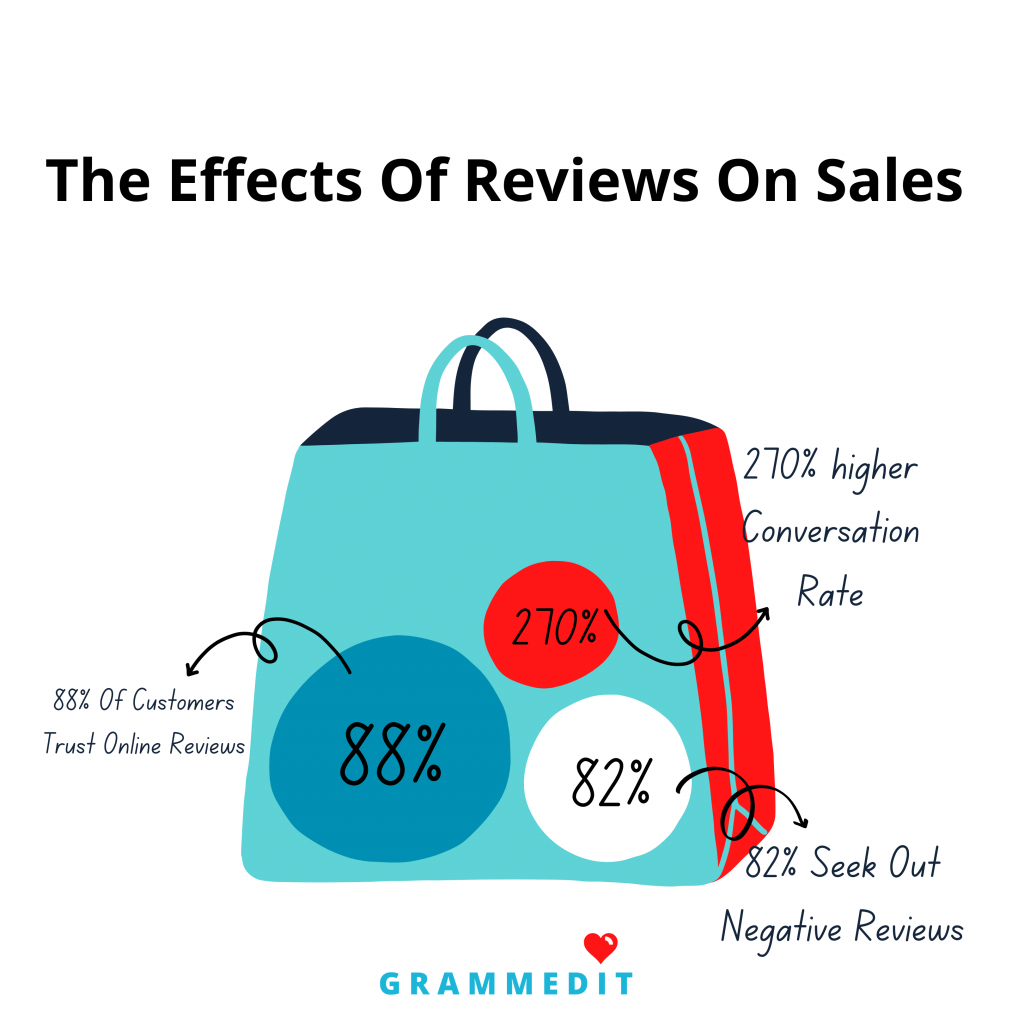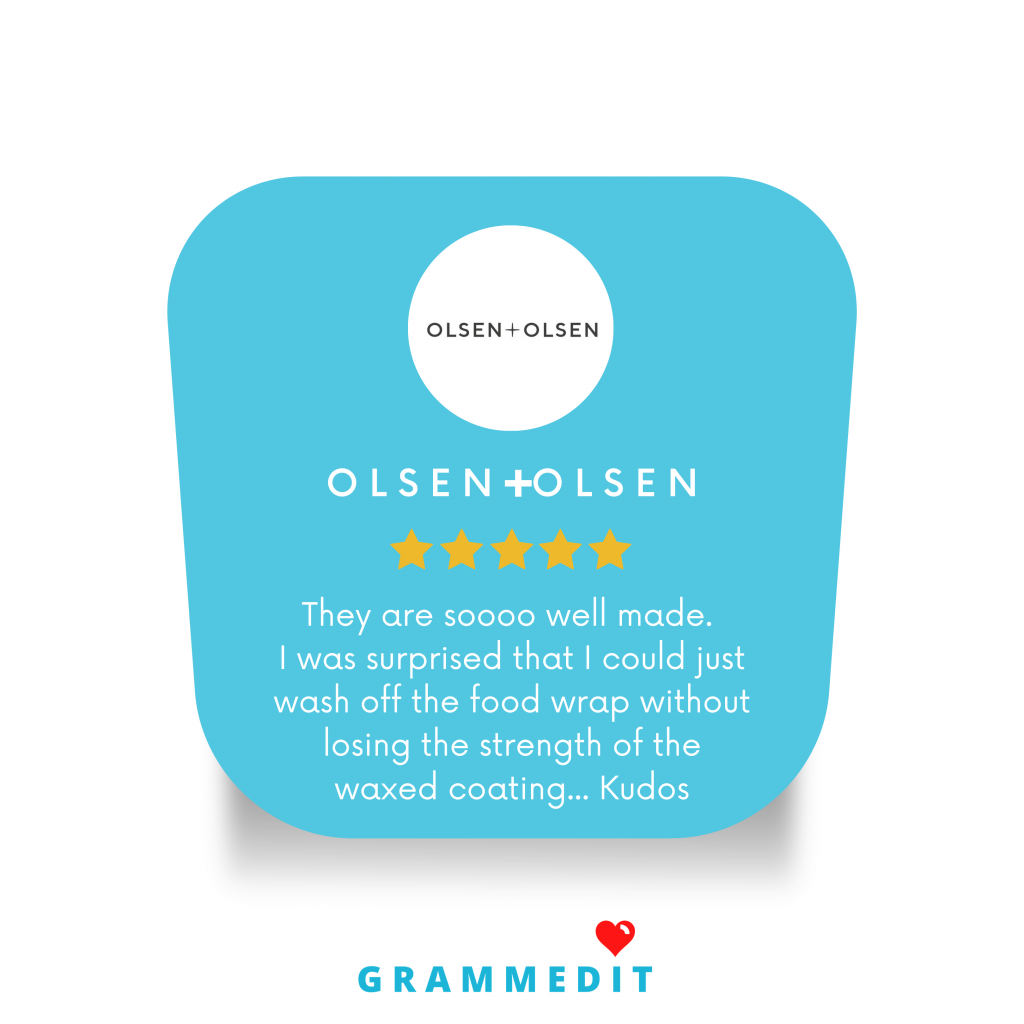Big e-commerce sellers understand the value of a diamond reputation. They know that their customer’s views and perceptions of their products or brands matter. How do customers express these views? Through reviews. So let’s get the facts on why your Instagram shop is being judged by the same standards.
How Important Are Customer Reviews?
Customer reviews in the online market are the judge and executioner of a product’s fate. Everyone has undoubtedly had a taste of this truth. Recall how many times you have read product or service reviews on either Yelp, Google, or Tripadvisor before you purchased in the past year. Consider this: your customers are looking at your Instagram business profile or website and searching for some kind of social proof.
When seeking to buy a specific product, potential buyers first look up the product’s features, benefits, and what other people think. In 9 out of 10 cases, they look for what fellow buyers say about it before finally making a buy or dump decision.
This stage is critical. A poorly described product can sell if it has excellent reviews. Simultaneously, a shiny high-quality picture with detailed descriptions will almost certainly fail if it is accompanied by slandering reviews. When visiting your online store or sales funnel, buyers almost always look for past buyers’ feedback before making a purchase.
The Impact Of Positive Reviews
According to public research, positive product reviews boost conversions by 270% (Date from Chicago, Ilinois Northwestern University) on average, and the importance of feedback in a business’ operational scheme cannot be overemphasized.
A business with reviews builds confidence in customers’ perceptions of the business’s authenticity and urges them to purchase. They feel more secure and more willing to buy, which eventually leads to higher conversion rates and an increase in sales.
- 86% of buyers will hesitate to spend money with a business that has negative online reviews
Overwhelming negative product or brand reviews can spell business disaster, as they signify poor public perception of your product.
Negative reviews can be due to the product failing to deliver on its promises, poor service quality, or other complaints that could cripple your sales if handled incorrectly. According to research from Spiegel Centre at Northwestern University, customers spend 4 times longer on a website with poor reviews resulting in a 67% higher conversion rate. This supports the finding in the same research that 82% of shoppers specifically seek out negatives reviews because they are skeptical of perfect scores regarding a business.
Research shows that 86% of people and businesses will have second thoughts on purchasing or doing business with a brand with overwhelmingly negative reviews. One good way to shatter client expectations is to under-promise and over-deliver!
While the potential disaster of a fraudulent review cannot be denied, many shady companies circumvent the system to obtain fraudulent reviews to boost their sales…
This article will highlight how to boost sales with legitimate independent customer reviews. But first, how do customers measure the value of a review?
The Effects Of Reviews On Sales (The Stats)
Potential buyers are always interested in knowing the experience other customers have had after buying a product of interest.

- 88% Of Customers Trust Online Reviews from Independent Third-Party Platforms Like Google, Yelp, Grammedit, and Similar websites, just as they would word of mouth recommendations
- 270% higher conversion rate
- 82% seek out negative reviews, they spend 4 times more on your site (SEO ranking through the roof….hellurrrr!!
All That Glitters Is Not Gold: Reviews From Handpicked Testimonials Vs. Independent Platforms
Let’s face it, most of us, weight reviews from independent platforms as holding as much weight as person-to-person recommendations—or sometimes even more. If you doubt that, ask yourself, when was the last time you went to a hotel without reviewing its star rating? What about a Netflix show, have ever read reviews about it before watching it? You get the gist…
Customers hold the belief that independent reviews are more objective than those cherry-picked for company websites. This is because reviews found on these platforms are written by people who likely do not know the business owner, and will therefore share their honest, unbiased views without emotional strings attached. However, some businesses hesitate to leave the fate of their reputation in the hands of reviewers found on independent platforms. So, they have opted for putting ONLY cherry-picked testimonials on their website. Why is this approach a mistake?
While testimonials have their place in building a company’s reputation, we at Grammedit believe that this manner of curating social proof only tells half the story about a brand. This is because our research indicates that customers understand that authenticity matters when they are looking for opinions regarding a product or service. Testimonials are only giving them half a tale that fosters more distrusts and prolongs the buying process.
Testimonials give companies a lot of control over the story they tell prospective customers about their products and services. But they lack the transparency that inspires confidence and trust in their brand. Therefore, businesses who opt to only showcase their testimonials are losing out on the “high-value authenticity” that could put them above their peers. In contrast, reviews found at third-party sites have a higher likelihood of reducing the anxiety that comes from distrust of your brand.
In a recent survey, three out of four customers expressed that they would consider buying an item from Instagram sellers if they had a social review platform. This means small businesses are losing nearly 75% of their customers because they lack an open, transparent way to assess the authenticity of the published reviews. Reviews on independent third-party platforms carry more weight.
What if you get a poor review? Well, there is a manual for that, coming soon.
Meanwhile, an example of a company that has a good strategy of seeking and using honest, authentic feedback to attract more customers is Snowbird Ski. In one instance, they created an entire print and digital campaign around a one-star review from a frustrated customer warning others about their steep hills and challenging terrain—effectively using this negative review as a golden marketing opportunity. What a bold and brilliant strategy. And judging by their current 4.5-star Tripadvisor rating, that strategy worked. Let your authenticity do the talking. Enough said!

The Dangers Of Fraudulent Reviews
Decreased Sales
A growing practice in the e-commerce world, dishing out fake positive reviews is one of the unhealthy ways sellers hoodwink buyers into patronizing them. This shallow, dishonest practice will always trigger the opposite intended outcome—a drop in sales in the long run. As well, it could potentially cause future customers to deem the business as untrustworthy and lacking authenticity.
Nobody is perfect, and the same goes for products and brands. Customers will likely suspect foul play if they see a product with over 99% positive reviews from more than 50 clients. No single business can please everyone!
Most customers will notice patterns and flags down your funnel or product page. The few who may be tricked to buy will alert potential buyers of fraudulent activities after finding out your product flaws, ultimately crippling your sales.
Taking Advantage Of Negative Reviews
Authentic reviews will help boost sales even if you have negative feedback. While they may seem bad on their own, negative reviews can be used as an opportunity to increase sales.
You can achieve this with your response and reaction to customer complaints. When you genuinely provide answers to queries, give detailed explanations on how to fix complaints, admit product flaws, and promise an upgrade, potential buyers will see that you genuinely care about your customers and are likely more willing to try your product.
You can also harness the power of social media to create ads with honest customer reviews. Do this with all available channels and as often as you can afford. It will eventually bear its fruit in conversions.
Another strategy to obtain positive reviews is by sending targeted emails to customers who had previously made a purchase and ask them to drop a review if they were satisfied with your products. This is an effective, traditional way to boost reviews and keep opinions fresh.
Finally, whatever strategy you choose, ensure you maintain authenticity and originality.
How often do you look out for reviews while shopping on a social platform? Do you have any master tips to help people identify fraudulent reviews? Please let us know in the comments section.
